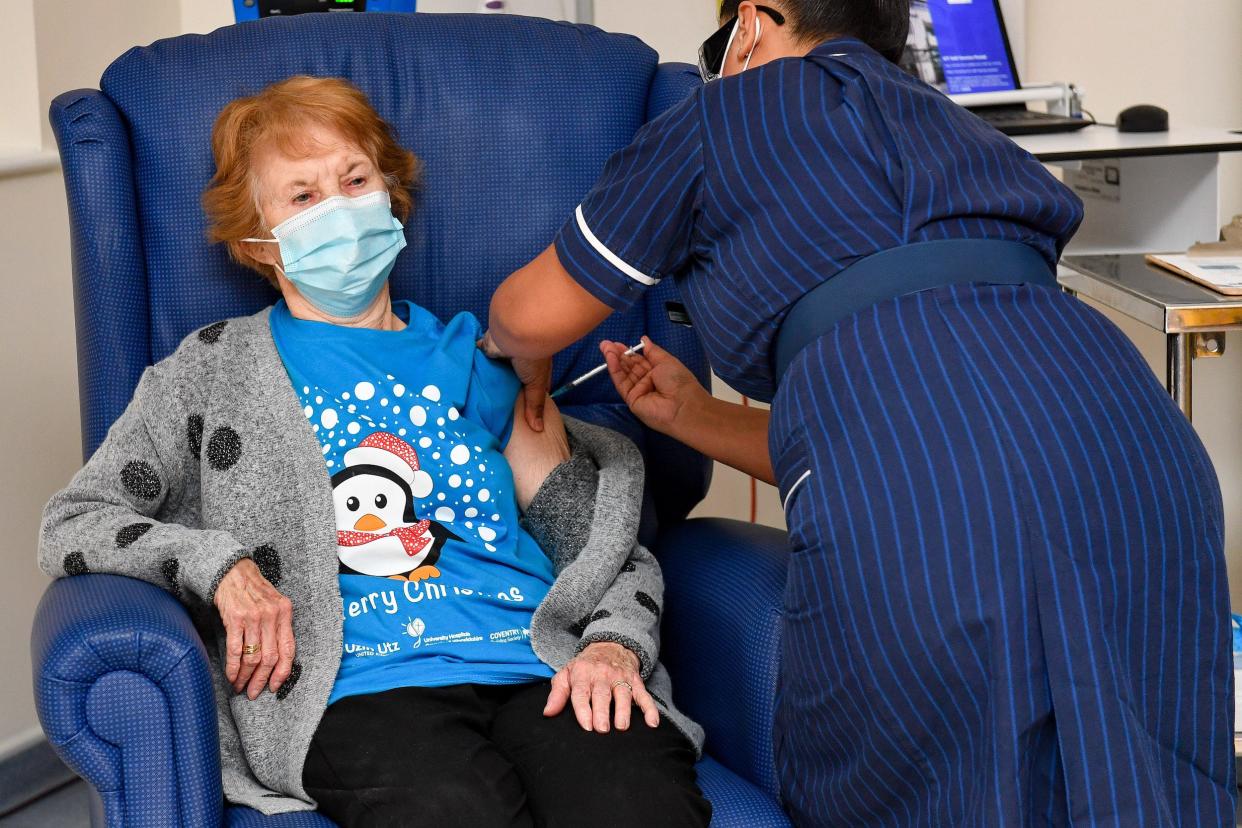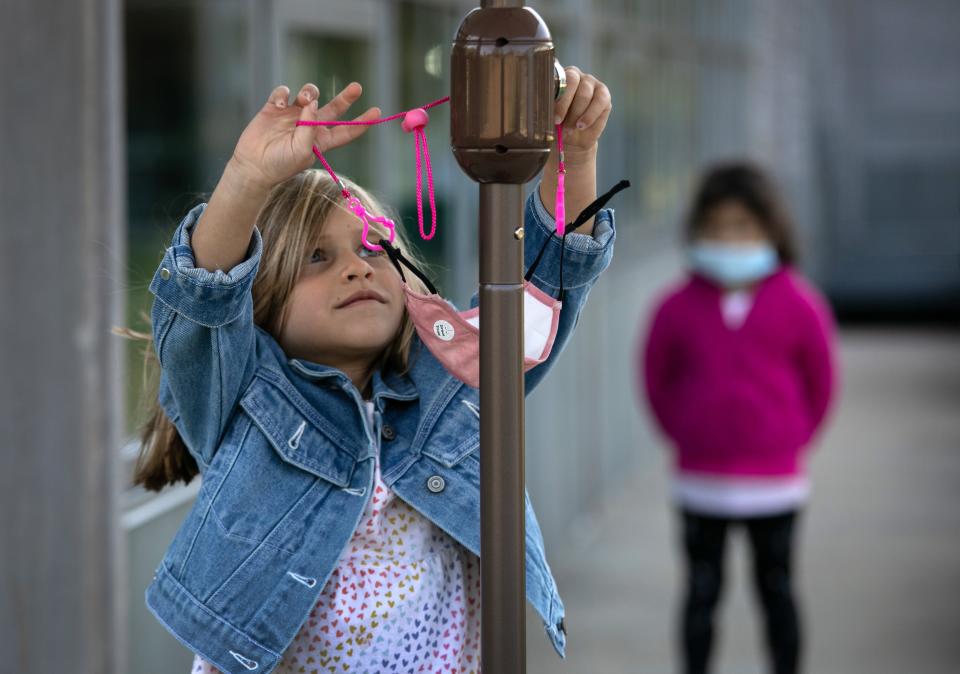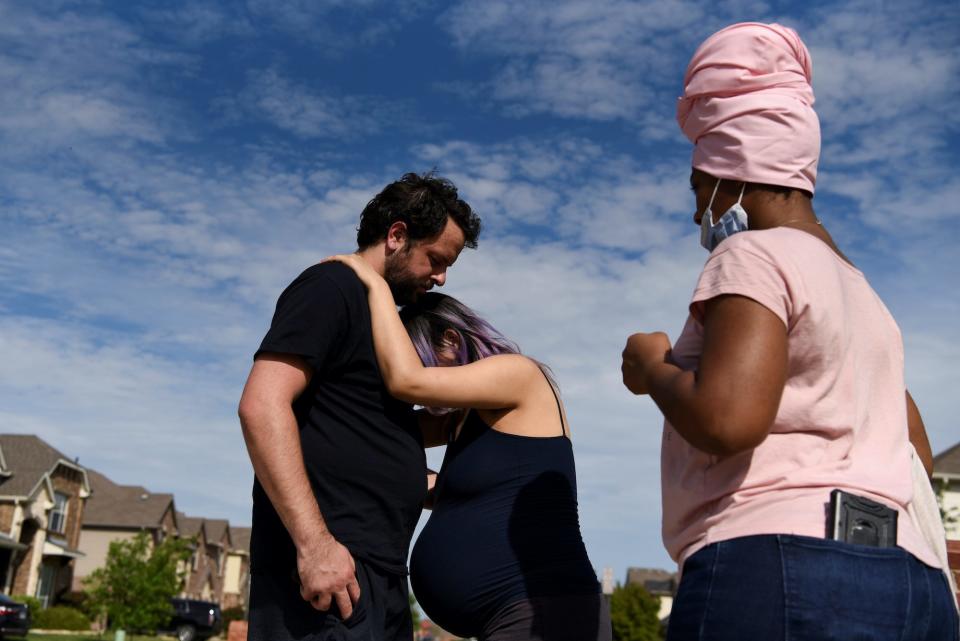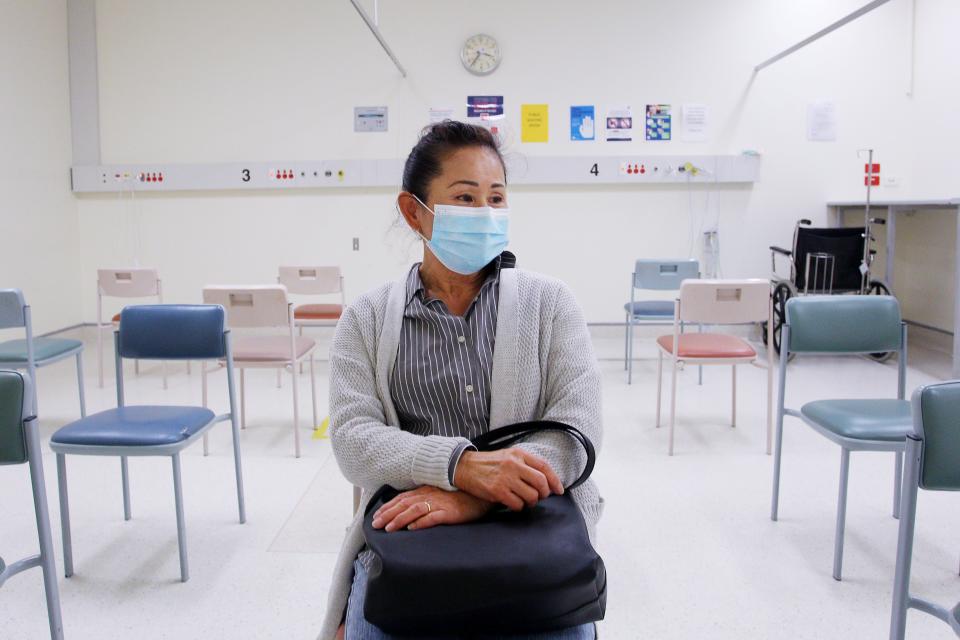Pfizer and Moderna vaccines should be safe for most Americans, but 5 groups may want to wait for more data before getting shots

The FDA authorized Moderna's coronavirus vaccine for emergency use in people ages 18 and older on Friday.
Pfizer's COVID-19 shot got US clearance for people ages 16 and older a week ago.
The FDA said it's up to pregnant people and their doctors to decide whether to get the vaccines.
The agency also said anyone with severe allergies to the vaccine's ingredients shouldn't be immunized.
Experts also worry about vaccinating people who previously got COVID-19, particularly if these people have lingering symptoms.
US vaccine regulators on Friday authorized the nation's second coronavirus shot for emergency use.
The Food and Drug Administration determined that the benefits of Moderna's coronavirus vaccine outweighed the known and potential risks, based on data from clinical trials. The agency authorized Pfizer's coronavirus vaccine a week prior.
Most participants in Pfizer's trial reported temporary side effects after being vaccinated, including fatigue, headaches, and pain at the injection site. In Moderna's trial, nine in 10 people who got the shots registered some side effects, but they were mostly mild or moderate.
Neither trial found any major safety concerns. Their results were consistent across genders, age groups, ethnic and racial groups, and people with preexisting medical problems.
Both studies were at or above the average size for a phase-three vaccine trial: Pfizer's late-stage trial involved more than 43,000 volunteers across six countries and 16 US states. Moderna's trial involved more than 30,000 participants throughout 30 US states.
But several populations were excluded from the trials - meaning it's still unclear whether the vaccines are safe for them. Recent FDA reviews have said there's "insufficient data" to assess whether the vaccines are safe for immunocompromised people, young children, or pregnant women.
Some public-health experts have also questioned whether people who were already infected with the coronavirus should get vaccinated, particularly if they have lingering symptoms.
Here are five groups that may want to wait for more data on how the vaccine affects people like them. Two of the groups, young children and those with severe allergies to the vaccine's ingredients, will have to wait.
Young children are often last to be included in trials

Research has indicated that many children clear the coronavirus before it leads to severe disease, resulting in mild or asymptomatic cases. Young children have represented a small percentage of confirmed coronavirus infections in the US, according to the Centers for Disease Control and Prevention.
That means kids aren't a priority group when it comes to vaccinations. They're also difficult to include in trials because of ethical and safety concerns. Some parents may not feel comfortable signing their kids up to participate, and researchers often prefer to test vaccines in a small group of adolescents before enrolling young kids.
Pfizer's clinical trials, for instance, did not include people younger than 12. And the sample size of kids from ages 12 to 15 was too small to weigh the risks. Moderna's trial didn't include children at all.
But there's little reason to suspect that kids will react poorly to the shots.
"Children generally respond well to vaccines," Donna Farber, a Columbia University immunologist, told Business Insider. "They should respond well or comparably to a young adult - and maybe even better."
Pregnant people were excluded from trials, too

Both the Pfizer and Moderna late-stage trials excluded pregnant people. They asked female volunteers to take a pregnancy test before each vaccination, and any with positive results were not allowed to continue.
Pfizer and Moderna plan to follow up with pregnant women who choose to get vaccinated now that the shots are authorized. That's how public-health experts eventually determined it was safe for pregnant women to get the flu vaccine, even though they were never included in the trials.
Dr. Peter Marks, director of the FDA's Center for Biologics Evaluation and Research, said on a Friday press call that pregnant women won't be denied the shots if they and their clinicians decide it's the best option for them.
"Either one of these vaccine is a reasonable choice after a woman has a conversation with her healthcare provider about the potential benefits of the vaccine versus its risk and the potential risk of COVID-19 and its adverse risks on pregnancy," Marks said.
He added that pregnant women will be included in future clinical studies.
"The exact design of those is still under discussion, but some of those are already getting underway," he said.
It's important to get this data as soon as possible, since pregnant people are at a higher risk of COVID-19 complications. A November CDC report found that pregnant women with COVID-19 were more likely to be admitted to the intensive-care unit, put on ventilators, need life support, and die than patients who weren't pregnant.
Pregnant people of color are particularly vulnerable. The report found that of all symptomatic pregnant women with COVID-19, 30% were Hispanic. But only 24% of women who gave birth in 2019 were Hispanic.
White women, on the other hand, represented 51% of women who gave birth in 2019 but only 24% of symptomatic pregnant women with COVID-19.
People with weakened immune systems must be particularly careful

Both the Pfizer and Moderna trials tested the vaccine among vulnerable populations, including healthcare workers and people with diabetes or HIV, but the cohorts weren't large enough for regulators to recommend the shot for immunocompromised people.
These individuals must be particularly careful about getting vaccinated. If a patient's immune system isn't working properly, the shot might not work as well for them.
In its instructions to healthcare providers, the FDA said "immunocompromised persons, including individuals receiving immunosuppressant therapy, may have a diminished immune response" to both the Pfizer and Moderna vaccines.
Both vaccines rely on a snippet of the virus' genome to trigger an immune response. They do not contain live virus, which doctors recommend immunocompromised people avoid.
Dr. Edward Jones-Lopez, an infectious-disease specialist at the University of Southern California, recently told Healthline that we're probably still "one or two studies away" from finding out whether coronavirus vaccines are safe for immunocompromised people.
People with severe allergies to the vaccine's ingredients must hold off

Pfizer and Moderna's vaccines both rely on messenger RNA, a snippet of the virus' genome that tells the body to produce one of its signature proteins, thereby spurring an immune response. The vaccines also include lipids - fatty substances that help the RNA cross the cell membrane.
The remaining ingredients aren't particularly allergenic: they're mostly salt, sugar, and a few substances that help stabilize other active ingredients. Pfizer said its vaccine doesn't contain any common allergens like nuts, eggs, or heavy metals, either.
Still, the FDA has not authorized immunizations for anyone with a severe allergic reaction (anaphylaxis) to the ingredients in either vaccine. Naturally, these individuals have been excluded from clinical trials as well.
So far, a few anaphylactic reactions to Pfizer's vaccine have arisen as people start to get their shots.
Last week, two UK National Health Service workers had non life-threatening allergic reactions shortly after receiving the shot. Both workers had known, severe allergies, which required them to carry EpiPens. This week, two people in Alaska, had allergic reactions, one of whom had no history of allergic reactions.
Some doctors suspect that in rare cases, people may be allergic to an ingredient called polyethylene glycol, found in the lipid component of both vaccines. But most people ingest this ingredient daily in foods, cosmetics, and medications (it's in the over-the-counter product MiraLAX).
Dr. Anthony Fauci, director of the National Institute of Allergy and Infectious Diseases, suggested last week that people who are generally prone to severe allergic reactions might want special medical supervision while getting vaccinated.
Still, most Americans shouldn't be concerned.
"People with just run of the mill seasonal allergies in general, I don't expect them to have problems with this," Dr. Erin Reigh, a staff physician in the Section of Allergy and Clinical Immunology at Dartmouth-Hitchcock Medical Center, told ABC News.
People who previously had COVID-19 are in a gray area

Pfizer and Moderna haven't specified whether their vaccines are safe for people who previously had COVID-19. Studies have suggested these people might have immunity that lasts anywhere from several months to several years. But the research is far from conclusive. They're likely to need a vaccine at some point.
"We want to look at vaccinating patients who have not been infected with COVID who are susceptible," Todd Ellerin, the director of infectious diseases at South Shore Health in Massachusetts, told Business Insider. "The post-COVID patients are not going to be your first, second, third, or fourth tier of groups that you're going to look at to want to vaccinate."
For people with long-lasting symptoms - known as long-haulers - it's possible that a vaccine could intensify an already aggressive immune response that for many has led to fatigue, muscle aches, trouble breathing, heart palpitations, or difficulty concentrating or sleeping.
"It'd be hard to engage a long-hauler in [a vaccine] study if they're having ongoing health problems," Natalie Lambert, an associate professor of medicine at Indiana University, told Business Insider. "Ethically there'd be big problems with having them take a vaccine, if you're worried about those effects."
Moderna did not include people who already had COVID-19 in its clinical trials. Pfizer, however, didn't screen participants for evidence of a prior coronavirus infection during its late-stage clinical trial. So it turned out that 3% of participants had been infected before. The data indicated the vaccine was just as effective in this group, but the FDA review said there wasn't enough evidence to know whether the vaccine prevented reinfection.
Ellerin said it would be unwise to inoculate previously infected people without more safety data.
"We have to keep our eye on the prize right now," he said. "Of course patients can get COVID more than once, so I'm not trying to tell you that they'll be excluded from this down the road, but we have a lot more to learn."
This article was updated on December 18 with information about the Moderna vaccine's emergency use authorization.
Read the original article on Business Insider


